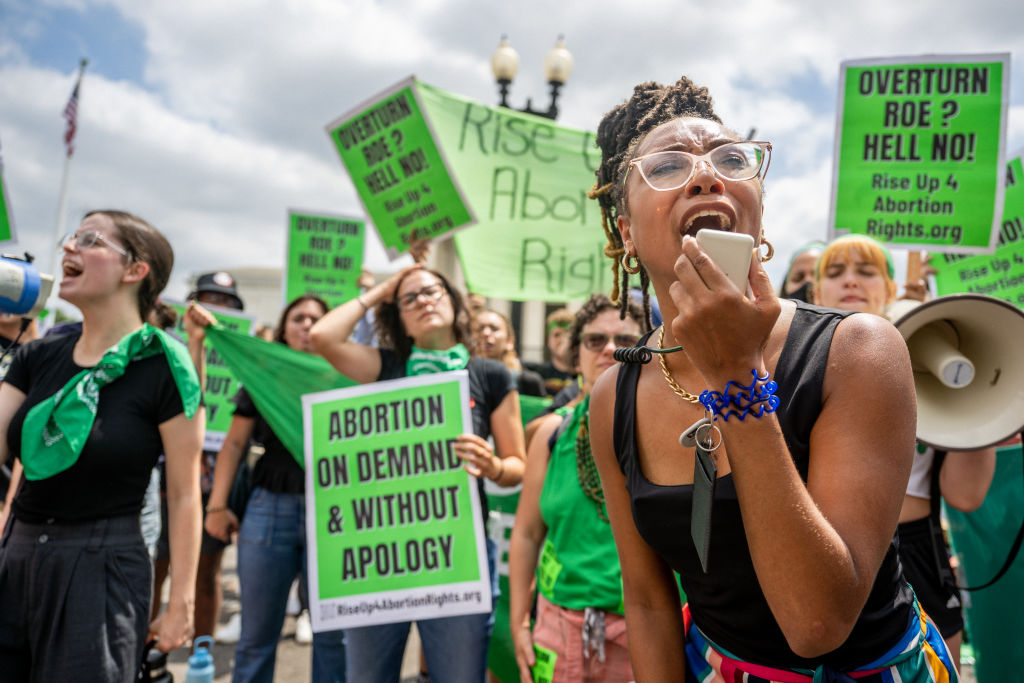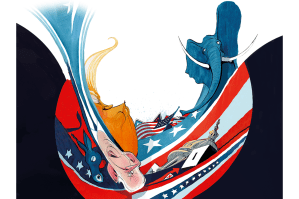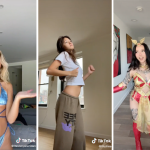It would be too much to say that wokeness lost Roe for progressives. There is of course a contingent in American politics and the population at large that views abortion as murder or murder-adjacent, and this is the camp that has, for the time being, gotten its way. But if you’re looking to sort out how the ostensibly pro-choice side got complacent enough to let the right to choose get overturned, look no further than the sorry state of contemporary feminism. If even so-called feminists think the typical American woman has it too easy, what hope is there for the fight for women’s rights?
Hadley Freeman attributes this feminist disaster to gender’s place in feminist activism, and specifically about the newfound reluctance of organizations and people to even use the word “woman,” lest the occasional non-woman-identified tampon-user or abortion-seeker feel left out. Another factor could be feminist infighting, or the thing where those of whichever ideology prefer nitpicking and calling out one another to uniting against common enemies. But there’s an even more specific flaw within feminism: an obsession — paradoxical, not to mention self-defeating — with apologizing for complaining. This extends to abortion rights, with progressive women, as Daisy Alioto tweets, refusing to “‘center’ themselves.”
Feminism has, in recent years, rebranded itself as a kind of generic movement on behalf of the oppressed. If old-school feminism was all about insisting women feel entitled to take up literal and metaphorical space — remember Lean In? Remember the campaign against manspreading? — then the new variety is more geared towards self-flagellating for doing so. Yes, earlier incarnations of feminism overemphasized the challenges facing female CEOs and presidential candidates. But the new ones have overcorrected, implicitly agreeing with the age-old anti-feminist adage, that privileged American women have nothing to complain about.
A ladylike impulse to apologize, socialized or otherwise, channels itself into privilege disclaimers, or passages in feminist essays, social media posts and so forth where a woman will explain that whatever her plight, she’s keenly aware that a marginalized woman has it worse. So it’s not quite that defenses of abortion entirely disappeared from the feminist landscape. Rather, it’s that they were now phrased as sanctimonious insistence that while we would be fine if Roe were overturned, those other women, the tragic underclasses, would suffer. Hence the need for a New York magazine piece in May on “the limits of privilege in a post-Roe world,” refuting that notion. “If you have paid attention to mainstream progressive politics in recent years,” writes Rebecca Traister, “you have likely heard some version of this message: that privileged women — middle- and upper-class women, cis women, white women — are not going to experience much of a change to their circumstances when Roe v. Wade goes.”
If the “cis” jumps out here, it could be because common sense suggests that women with the typical anatomy and the usual sexual orientation — cisgender, heterosexual women — are in fact the people most impacted by the legality of abortion. Even if trans women have a tougher time of it, all things equal, they are not often found wondering why their period is late that month. And yet, per a capitalization-happy tweeter, Roe’s demise “IS AN LGBTQ+ ISSUE AS MUCH AS IT IS A WOMEN’S RIGHTS ISSUE!” Think of the gay men here, many of whom are lined up at Planned Parenthoods around the nation for emergency IUDs.
To care about abortion rights — and to do so in a way that made clear that these were your own rights you cared about, and not those of some more oppressed woman far away — simply became passé.
The apologetic turn in feminism is at least a decade old but ramped up in the past couple of years. In the summer of 2020, the progressive zeitgeist abruptly shifted from #MeToo, which presented sexually abused young women as society’s great victims, to Black Lives Matter, and an insistence that no, actually racism was the most pressing concern.
This shift was no mere reprioritization. White women influencers and media types spent much of 2020 and onward getting canceled and promising to do better. The entitled white lady — the “Karen” — became the enemy du jour, despised across the political spectrum. While in her initial form, the Karen seems to have been the proverbial white woman who called the cops on black people minding their own business, “Karen” came to refer to a woman of any race who asserted herself without caring that doing so annoyed or inconvenienced someone else.
Again, here’s Traister: “To consider even the most cynical caricature of white middle-class womanhood, the Karens who are used to calling the manager when they have a complaint, the reality is going to be that, in many places, there will no longer be a manager to call.”


















